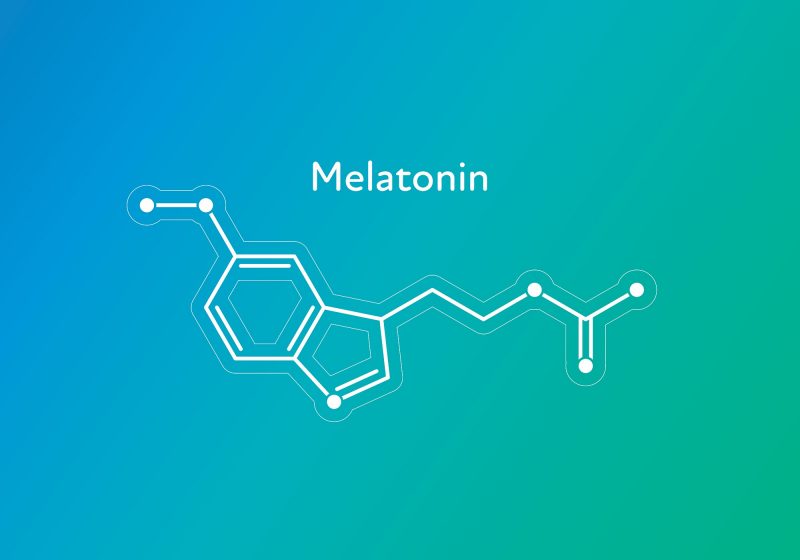Generally associated with sleep regulation, melatonin is a hormone that has grabbed the interest of anti-aging experts, researchers and healthy living enthusiasts.
Secreted by the pineal gland in the brain, melatonin helps us keep time and is released at night. In that sense, it’s a biological control mechanism to help us stay in tune with our natural circadian rhythms.
It’s a common misconception that as we age, we naturally sleep less or our melatonin levels drop, but research shows that in healthy individuals, this is not the case. These misconceptions can lead health conscious individuals to take the supplement inappropriately or unnecessarily and doing so does carry some risk for older adults if taken incorrectly. These include headache, dizziness, nausea and adverse reactions with common medications such as anticoagulants and diabetes and blood pressure medications.

For the most part, however, melatonin is safe to use. But it shouldn’t be mistaken for a regular supplement. At the end of the day, it is still a hormone, long term use of which may have unforeseen impacts. That said, for people suffering from sleep disturbances or who are out of sync with circadian rhythms, melatonin may prove to be a valuable sleep regulator.
Additionally, research has begun to suggest that melatonin may also have other benefits.
What are the Benefits?
Some studies suggest that melatonin can delay the impact of aging on circadian rhythms and thus, through the maintenance of healthy sleep patterns, extend lifespans.
Looking at a small mammal that typically lives for 30 months in captivity, researchers observed that it exhibited the first signs of aging around the 12-month mark, the primary symptom of which was the absence of circadian rhythm in its daily routine. By regularly giving the animal melatonin just before it reached one year of age, that disruption of sleep rhythm was delayed by an average of three months.
The study, however, is a preliminary finding and would need to be replicated in higher order animals to carry more significance.
What we do know is that melatonin is a powerful antioxidant and a plethora of research suggests that it has neuroprotective qualities.
As is often the case, one study begets another. In 2010, a study was published in the Journal of Clinical Neurology in which researchers considered the previous work of their colleagues along with evidence that in mammals, melatonin plays an important role in immune response, reproduction, body weight and the ability to inhibit tumor growth. And in looking at other research related to the brain, they leaned on studies that suggested resveratrol reduced macular degeneration, Alzheimer’s Disease and stroke.
They then set out to study the impact of combining melatonin and resveratrol to see if they had a significant impact on the formation of amyloid beta1-42, a protein that causes neuroinflammation, oxidative stress and a negative impact on immune response.
The combination of melatonin and resveratrol did lower the presence of the targeted amyloid beta protein as well as the pathways along which it forms. The study concluded that “combined treatment with melatonin and resveratrol benefits neuronal survival by inhibiting the activation of AMPK,” or AMP activated protein kinase pathways.
Obviously, research is ongoing, but in certain cases, it’s reasonable to consider melatonin usage as a supplemental treatment for certain conditions as long as it’s done under guidance and in concert with other medications or supplements that can help you get the most from it.
Melatonin and Skin
Skin aging is a major concern for many elderly people. One of the biggest detriments to skin health is UV-induced solar damage. Melatonin counteracts the effects of this damage in a very distinct way providing what scientists call the melatoninergic antioxidative system (MAS).

This “cascade of antioxidants” as researchers called it in a study published in the journal Dermato Endocrinology, regulates the balance of interdependent elements within our flesh. They believe that it prevents the harmful consequences of UV solar skin damage by creating a barrier that protects the skin from the surface to its deepest levels. This is because melatonin is also lipophilic, meaning it can be diffused into skin and cells quite easily to create a defense system against environmental stress.
So as it turns out, melatonin does have the potential to do a lot more for us than just regulate sleep, but scientists need more time to study the appropriate administration for melatonin after the diagnosis of conditions it has been shown to benefit. In the meantime, if you think melatonin may have some benefit for you, consult your doctor before diving right into regular usage.
